When do you plan to retire? Have you even thought about it? If you are under 40, chances are it hasn’t even crossed your mind. However retirement could easily comprise 1/3 of your entire life. Decisions you make now may be import for your future. Sure, some of that is related to savings, but equally important are health and expertise. It is important to feel valued, and of value now and in the future. With this in mind, I started to look into the science of retirement age (using the metric of mortality/survival).
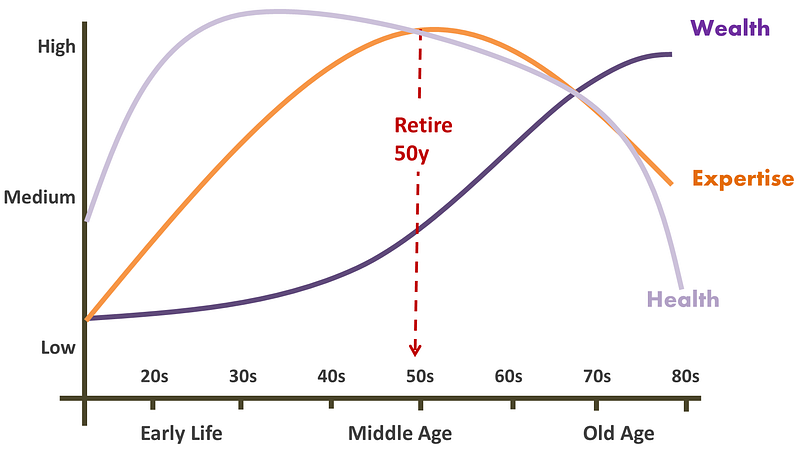
If you retire at 50–55yrs (only 3% are able to do this), you are likely in great health and have plenty of “healthspan” to enjoy. But there is a risk you could waste your expertise (and potentially not maximize your wealth). So this is a strategy to consider if you have the resources and other roles you want to pursue.
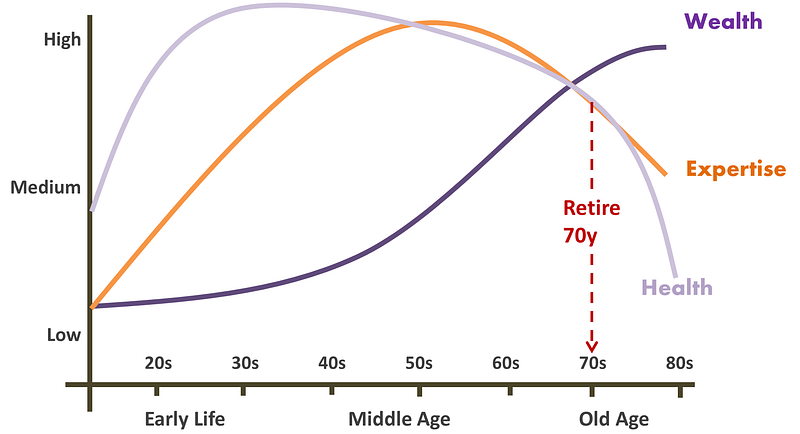
If you retire at 70–75yrs (10% do this), you are have likely maximized your earnings and your employer has benefited enormously from your skills but there could be health issues by then. So this is a strategy to consider if you love your job, are valued as an employee and don’t have lots of other interests you want to purse. Or you could simply be a business owner and working isn’t really “working” like most people do.
Many workers dream of retiring as early as possible to pursue travel, leisure, sport, and other pursuits. But the research findings from early studies (Andreas Kuhn, Stefan Staubli, Jean-Philippe Wuellrich, and Josef Zweimüller), suggested that men might want to postpone retirement if possible. Early retirement was linked with reduce survival! Recently using information from the Austrian Social Security Database information on 310,440 men and 144,532 women those who took early retirement, researchers found that an additional year in early retirement increased a man’s probability of death before age 73 by 7% and reduced the age at death by 0.2 years (for women there was no effect).
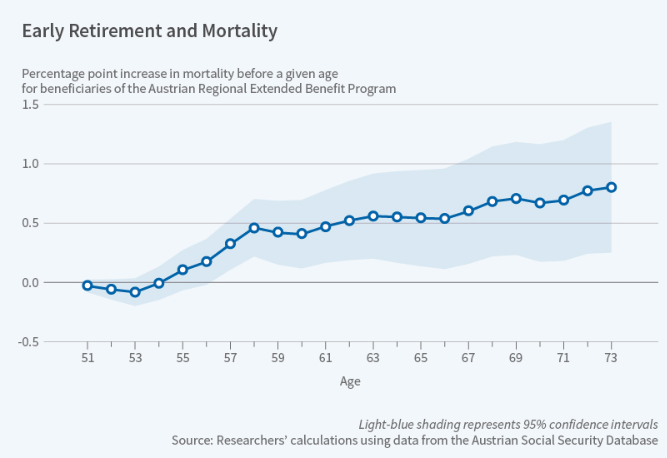
However there are various complications to consider, the first is voluntary vs involuntary retirement. Basically, if you are forced to retire with ill health, or redundancy) it can be bad news because you are forced into losing the main role you worked so hard to build. That can end in clinical depression or anxiety (Li 2021).
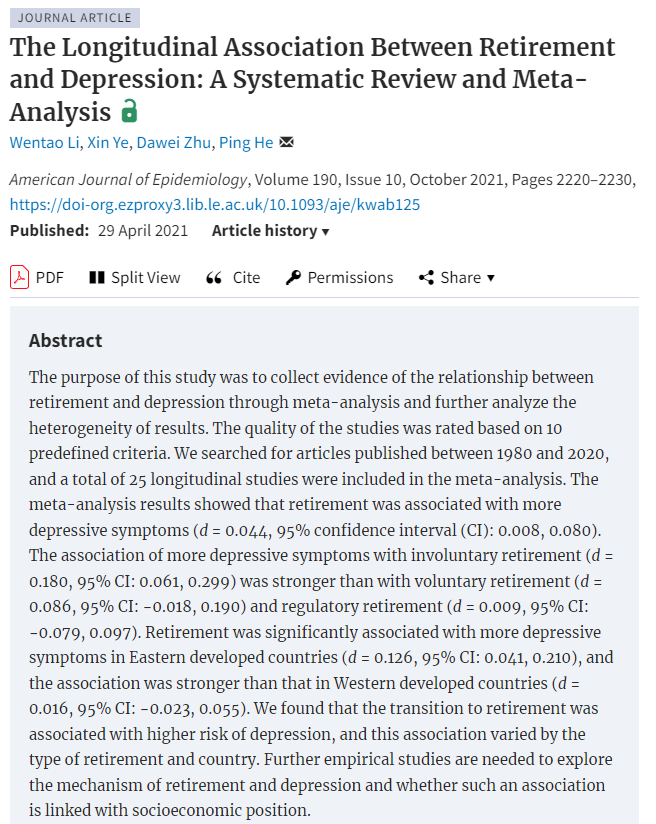
The next confound is health. Many people retire early precisely because of ill health. Therefore of recent meta-analyses retirement age does not affect mortality as much once health prior to retirement is taken into account (Bozio et al., 2021; Carlsson et al., 2012; Hult et al., 2010; Sewdas et al., 2020). The latest big study is from Sewdas 2020:
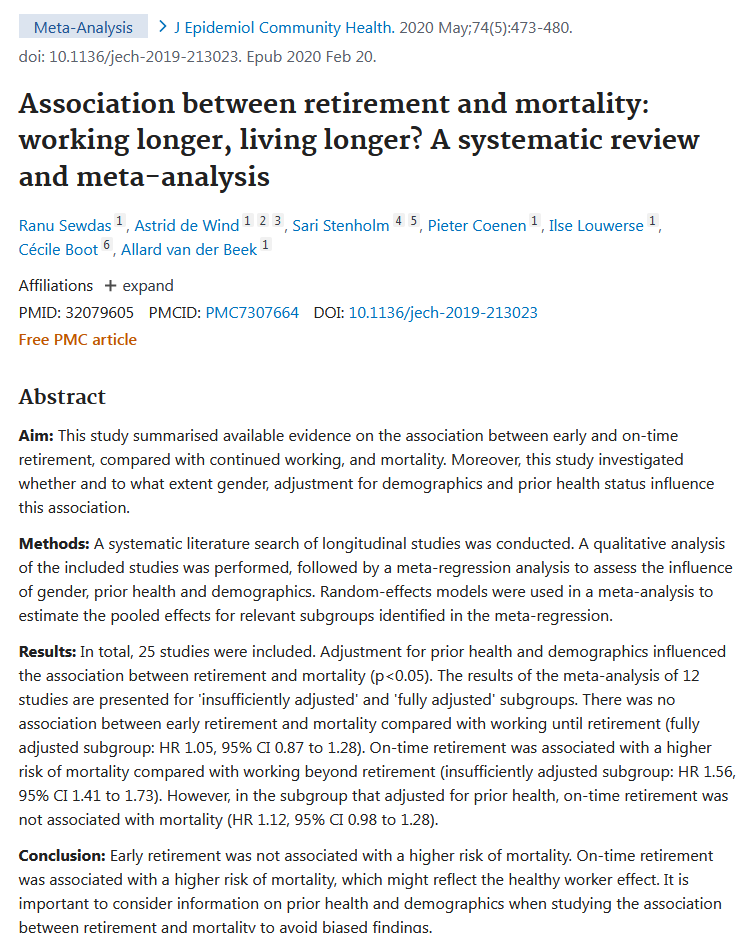
Sewdas et al. (2020) found that retirement, compared to continuing working, increases the risk of mortality by 56%! and this was at the usual time (eg 65y). There was a small association between early retirement and mortality but it was not significant (HR 1.05). So early retirement was pretty safe after all. In fact AFTER adjusting for prior health, on-time retirement was not strongly associated with mortality…the effect was reduced to 12% (HR 1.12, 95% CI 0.98 to 1.28), a small effect. Late retirement seemed to be the best option.
Remember none of these studies are RCTs, and no RCT of retirement vs no retirement existing, but one quiasi-random study exists where people who had the right to retire at 60 years in Spain, were then told to retire at 65, or 70 instead. They found delayed by each (one) year increases the hazard of dying between the ages of 60 and 69 by 4.2 percentage points (43%). The mortality responses are the strongest between the ages of 60 and 64 (67%). The exact same enforced non-retirement keeps happening in the NHS and other public sector workers.
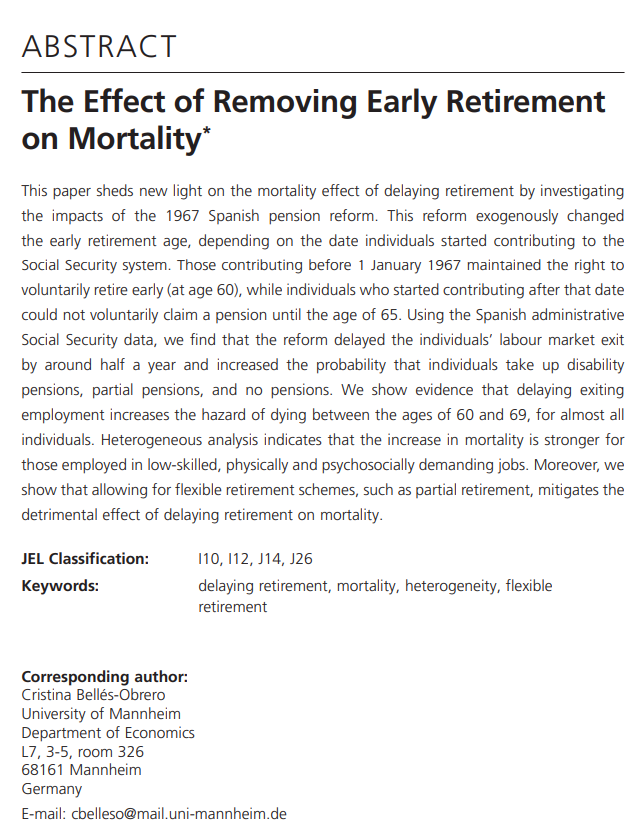
What Can We Conclude?
Retiring does not always mean what you think it does. Retiring from a bad employer, and freeing you to work in a new role is very different from retiring from a lifelong low stress job into a unexpected situation perhaps with few options and little support. The key is:
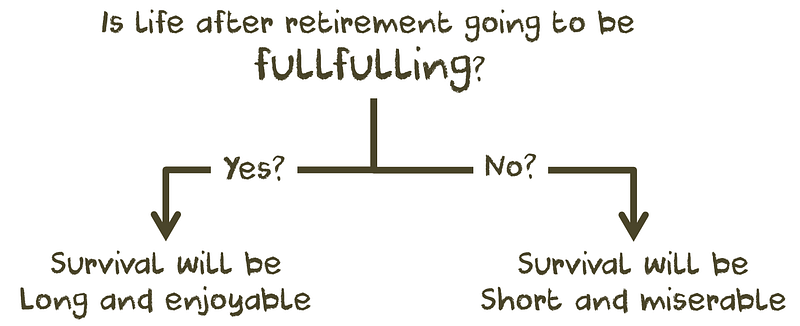
If you are curious about your healthspan, lifespan or retirement days, try our calculator here
